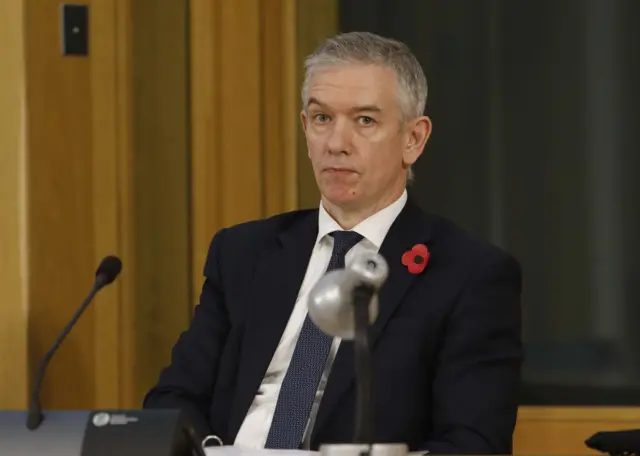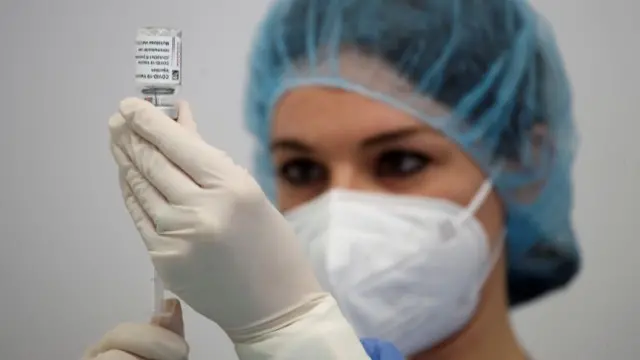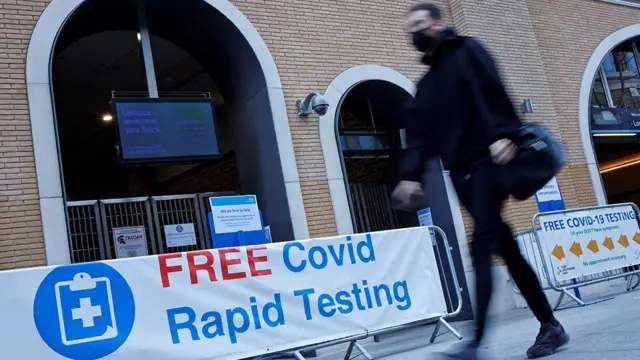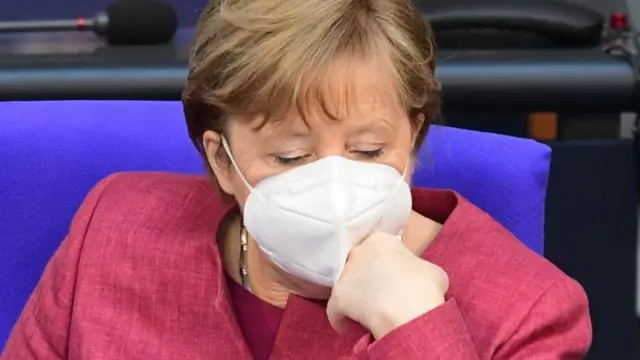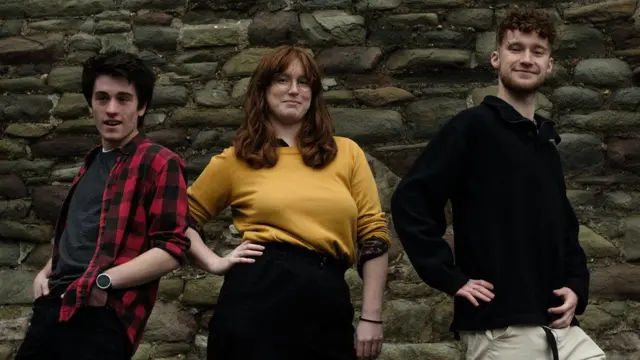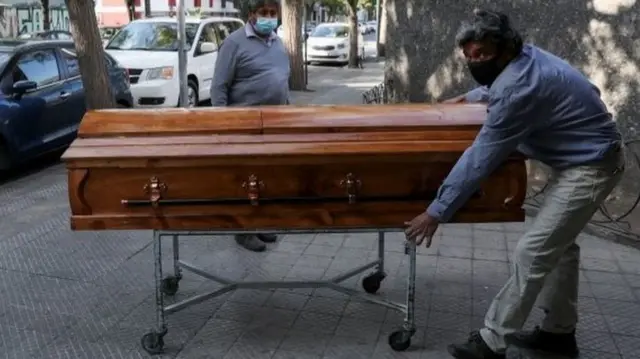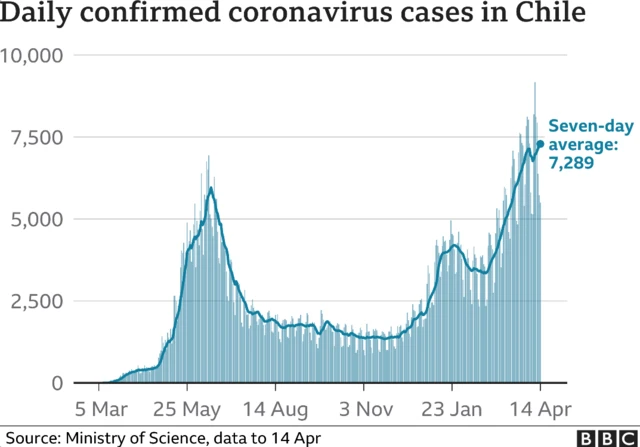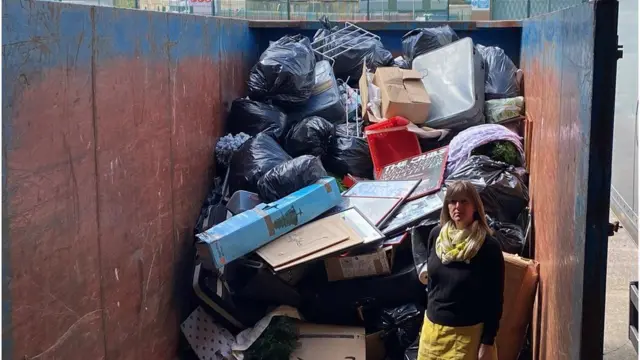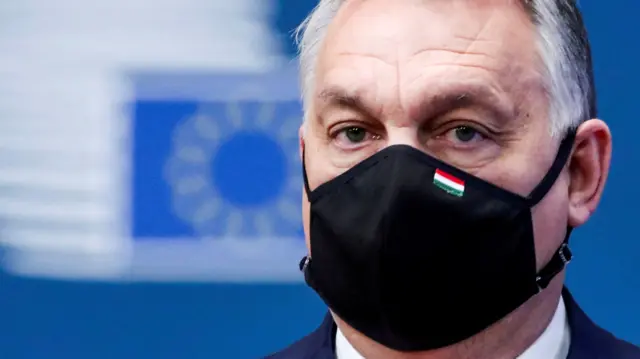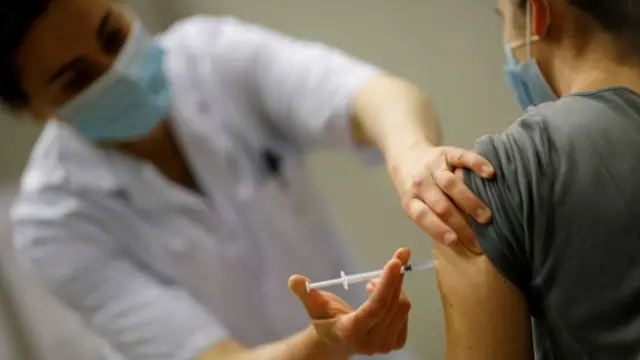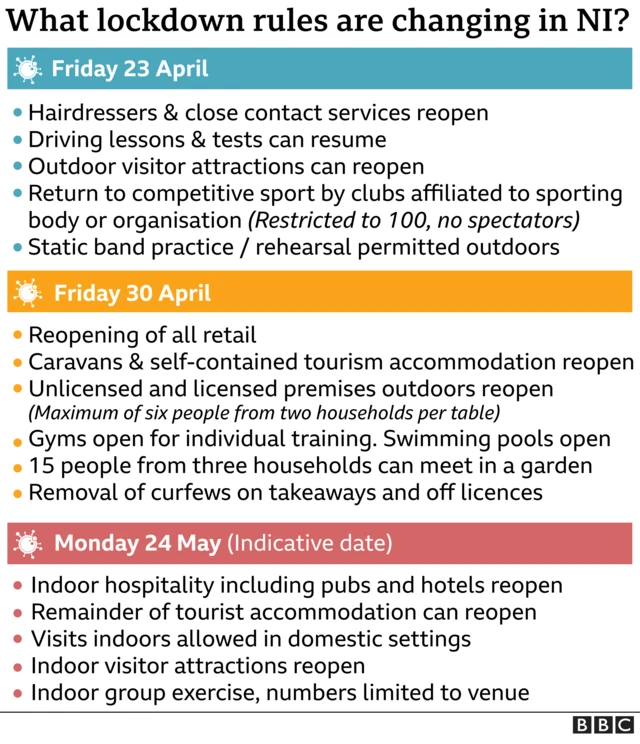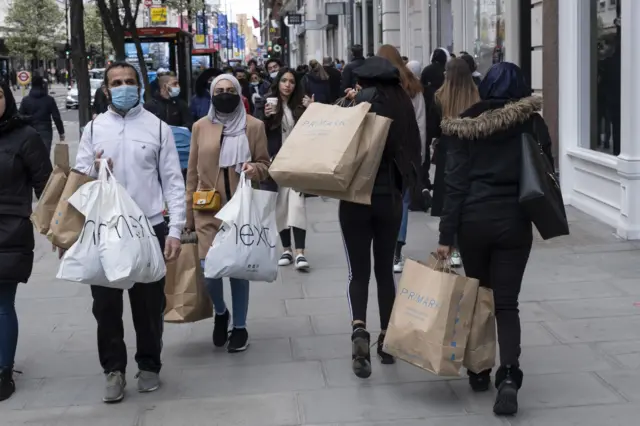Portugal extends emergency amid warnings over easingpublished at 11:55 BST 16 April 2021
Alison Roberts
Portugal Correspondent, Lisbon
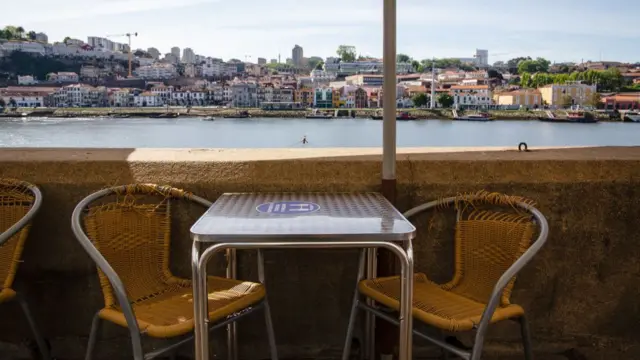 Image source, Getty Images
Image source, Getty ImagesRestrictions on dining out are being eased next week in Portuguese regions where infection rates remain low
Portugal today begins a new 15-day state of emergency that President Marcelo Rebelo de Sousa says he hopes will be its last, as most of the country prepares to move ahead with further easing of its coronavirus lockdown from Monday.
The state of emergency, which will last until the end of the month, allows the government to implement measures such as curfews and quarantine.
In regions where the coronavirus infection rate remains low, however, restrictions are being eased next week.
Shopping centres will be able to open and cafés and restaurants to serve up to four people at tables indoors and up to six outdoors.
Sports activities deemed to be of medium risk - such as handball and basketball - may resume and groups of up to six may engage in other physical exercise outdoors.
Portugal currently has the lowest infection rate in the European Union, according to figures released by the European Centre for Disease Prevention and Control (ECDC), at 68 per 100,000 of population over a 14 day period.
However, health experts in the country warn that the gradual relaxation of lockdown rules could lead to a significant jump in coronavirus cases within weeks.
If the rate breaches the threshold of 120 per 100,000 set by the government as a limit for halting or reversing lockdown easing, measures may need to be reapplied.
In four municipalities the infection rate is over 240, and restrictions mean that all but a handful of non-essential shops and services have to close and cafés and restaurants are back to takeaways and home deliveries only.
